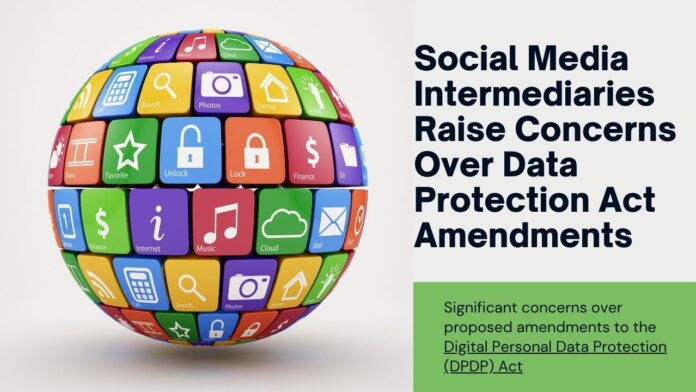New Delhi, July 3, 2024 — Social media intermediaries have voiced significant concerns over proposed amendments to the Digital Personal Data Protection (DPDP) Act, particularly regarding behavioural tracking of children, verifiable parental consent (VPC), and targeted advertisements. According to a recent report by ET, these issues are at the forefront of discussions as the government prepares to release updated rules under the DPDP Act.
Section 9 of the DPDP Act, which was gazetted last August, explicitly prohibits the behavioural tracking of children on digital platforms. This restriction has prompted concerns among social media companies regarding the impact on the efficacy of their safety features.
“We must gather certain user signals to ensure the effectiveness of our safety measures, both for adults and children,” explained an executive from a social media intermediary in an interview with ET. “We are actively collaborating with the Ministry of Electronics and Information Technology (MeitY) and other stakeholders to find a balanced approach that safeguards the privacy and safety of teenagers while allowing platforms to implement necessary protective measures,” the executive added.
Introduced by the government in August last year, the DPDP Act defines individuals below 18 years old as children and mandates that social media and internet intermediaries (data fiduciaries) cannot process any data pertaining to children without explicit parental consent.
In response to these stringent requirements, social media platforms have proposed various methods, such as QR codes, virtual Aadhaar IDs, or age verification at the app store level, to ensure compliance with the DPDP Act of 2023. However, industry executives have expressed reservations about the privacy implications and practicality of these tools for verifying children’s age and parental consent.
The government, aiming to address concerns related to online safety for minors, reportedly devised a strategy last November to offer intermediaries multiple options for enforcing age-gating and managing parental consent effectively. Age-gating mechanisms are technical measures designed to restrict underage users from accessing websites or content deemed inappropriate.
Despite industry resistance, government officials indicate that intermediaries may be required to adopt one of the proposed solutions for age-gating, which involve verifying the user’s age, identifying the parent, and establishing their relationship with the child.
As the government finalizes the amendments to the DPDP Act, stakeholders anticipate further clarity on these issues and hope for a balanced approach that protects children’s privacy without hindering essential safety measures on digital platforms.
For updates on the evolving regulatory framework and its impact on social media policies, stay tuned to ET and other leading news outlets.
This article is based on information sourced from ET and statements by industry executives and government officials.




